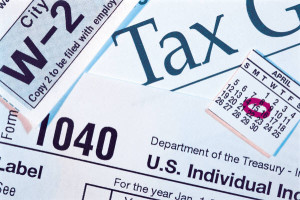Chapter 7 Bankruptcy and Income Tax Returns Go Hand in Hand
Hand
Individuals contemplating filing a Chapter 7 bankruptcy case (also known as a liquidation bankruptcy) who haven’t filed a federal income tax return for the past year may have problems. (The Internal Revenue Service website identifies the minimum income requirements that obligate the filing of a tax return).
The Most Recent Tax Return Must be Delivered to the Bankruptcy Trustee
Pursuant to U.S. Bankruptcy Code (11 U.S.C. § 521(e)(2)(A)), a Chapter 7 debtor has until 7 days prior to the first meeting of creditors to provide the bankruptcy trustee with a copy of the debtor’s most recent tax return.
Compelling a Chapter 7 Debtor to File Income Tax Returns With the Bankruptcy Court
Upon the request of the bankruptcy court, U.S. Trustee or any other party in interest, a Chapter 7 debtor is required to file with the bankruptcy court his or her current federal income tax return (or at the debtor’s election, a transcript of such return) for each tax year the debtor’s case remains pending with the bankruptcy court. 11 U.S.C. § 521(f)(1)
Also, an individual Chapter 7 debtor must file a delinquent tax return for any tax year ending within a three-year period before the petition date when either the bankruptcy court, U.S. Trustee or any party in interest requests it. 11 U.S.C. § 522(f)(2).
Dismissal of a Chapter 7 Bankruptcy Case For Failure to Provide a Current Tax Return
A Chapter 7 debtor who fails to provide a current tax return runs the risk of the bankruptcy court dismissing the case “unless the debtor demonstrates that the failure to so comply is due to circumstances beyond the control of the debtor.” 11 U.S.C. § 521(e)(2)(B).
Taxing authorities are also independently vested with the right to seek dismissal of a Chapter 7 case if the individual does not file any tax return that becomes due after the petition date within 90 days of the request, or fails to obtain an extension of the due date. 11 U.S.C. § 521(j).
Unfiled Income Tax Returns Could Mean No Discharge
A Chapter 7 debtor has certain fiduciary obligations, the filing of income tax returns being one of them. A debtor who fails to produce his or her filed federal income tax return(s) may be denied a bankruptcy discharge.
Disclaimer: This post is limited to Chapter 7 bankruptcy cases. There are additional requirements for filing federal income tax returns in Chapter 13 bankruptcy cases.

 Hand
Hand